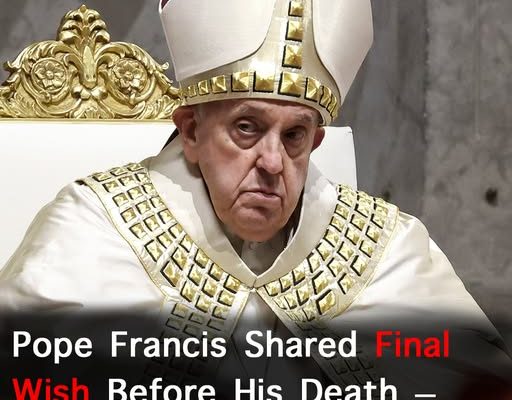Pope Francis passed away on April 21 at the age of 88, leaving a profound sense of loss within the global Catholic community and beyond. Renowned for his humility, simplicity, and advocacy on pressing global issues, the Argentine-born leader succumbed to a series of health challenges. Just a day before his death, he blessed the crowds from the balcony of St. Peter’s Basilica during Easter Sunday, a moment now seen as a poignant farewell.
His death was confirmed by Cardinal Kevin Farrell, who announced that the Holy Father had “returned to the house of the Father” at 7:35 a.m. According to Vatican medical authorities, Pope Francis died from a massive stroke that led to a coma and irreversible cardiocirculatory collapse, following a period of serious respiratory illnesses that had kept him hospitalized earlier in the year.
Born Jorge Mario Bergoglio in Buenos Aires in 1936 to Italian immigrant parents, Pope Francis initially trained as a chemical technician before entering the Diocesan Seminary of Villa Devoto. He joined the Society of Jesus in 1958, dedicating his life to religious service. After earning degrees in philosophy and theology, he was ordained as a priest in 1969. His steady rise through the Catholic Church culminated in his appointment as Archbishop of Buenos Aires in 1998 and his elevation to cardinal by Pope John Paul II in 2001.
When Pope Benedict XVI resigned in 2013, Bergoglio made history as the first Latin American pope, adopting the name Francis in honor of Saint Francis of Assisi. His papacy emphasized social justice, inclusivity, and environmental stewardship, with a strong focus on core Gospel values. He championed the rights of the poor, spoke out against economic inequality, and addressed climate change through his encyclical “Laudato Si’,” urging humanity to care for the planet and its vulnerable inhabitants. Francis also took progressive stances on LGBTQ+ rights, calling laws that criminalize homosexuality “unjust,” which earned him both admiration and resistance within the Church.
Despite facing criticism for his handling of clerical sexual abuse allegations, including a significant misstep in Chile, he ultimately took a firmer stance on abuse within the Church. Francis remained committed to personal humility, choosing to live in the modest Casa Santa Marta rather than the traditional papal apartment. His lifestyle choices reflected his message of modesty over luxury and service over status.
Even as he battled severe health issues, including respiratory illnesses and surgeries, Francis never considered resigning. In a 2024 interview, he stated, “I have never thought of resigning.” In his final weeks, he continued to engage with global issues and meet with leaders. His will, released after his passing, revealed his desire to be buried at the Basilica of Santa Maria Maggiore, a place of personal significance, rather than in the papal crypt beneath St. Peter’s Basilica.
In his final testament, he expressed a wish for a simple burial, with no elaborate inscriptions—just the name “Franciscus.” He also made financial arrangements for his burial, requesting that expenses be covered by a private donation. His last words, spoken to his personal nurse, Massimiliano Strappetti, were a heartfelt thank you for bringing him back to the Square, referencing his final ride through the crowd on Easter Sunday.
As the Church prepares to honor his legacy, the world reflects on a papacy that bridged tradition with modernity, bringing the Catholic Church closer to the people and the margins of society. Pope Francis’ journey may have ended, but his influence is sure to resonate for generations to come.




